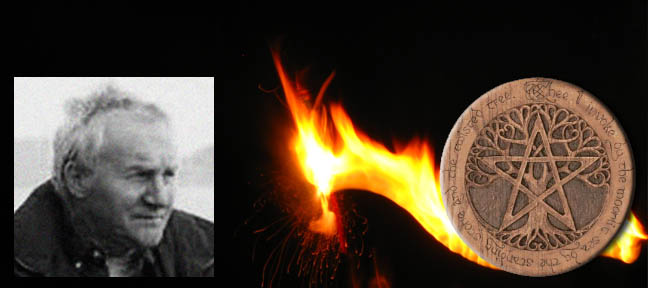Article in PDF (Download)
Terry is a Founding Contributor to Live Encounters. He has supported every issue for the last 5 years by ‘donating’ his poems to be shared with our readers across the world. In his writing he has shown us a world that exists in a separate time, cocooned in his beloved Ireland. And for this we will always be thankful. – Editor
Guest Editorial – A Few Thoughts around the Feast of Samhain by Terry McDonagh, Irish Poet, Playwright and Writer – LE Volume Three December 2014
Karl Marx said all history was economic. To some extent the man was right, but only to some extent. There are so many aspects of life and in nature that won’t be quantified, bought or sold. A number of years ago, while taking part in a literature festival on Bali, I watched a woman sprinkling water in reverential and ritual fashion that, immediately, reminded of my childhood in the west of Ireland – of my father, in particular, sprinkling holy water all around the house during storms or, indeed, on animals and crops for reasons known to him and to our ancestors of thousands of years. We believed in the power of water. Water was drawn to him and he to water.
Just recently I was honoured and delighted to be asked by The National Museum of Ireland to facilitate some writing workshops on the topic of Samhain – an ancient Celtic feast of death, birth and renewal which we celebrate on the last day of October into November 1st. Samhain is really our Celtic New year. It was a rare opportunity to meet and write with a very enlightened group of people. It was a fresh wind blowing the cobwebs of the intervening years to one side. We relished in exploring a rich past only slightly hidden below the surface. We were archaeologists digging and poking about in inexplicable happenings and wayward spirits.
It is said that when one person died in a neighbourhood, two others would follow. A priest, who had no regard for old customs, had wanted to cut down a thorn bush in order to make more room for a new hospital he was trying to build. He asked several men of the parish to do the job but most refused. One or two did attempt but were unable to complete the task for some reason – one man even died shortly afterwards. The bush stood. The priest had not understood that the oak, ash and thorn are sacred Celtic trees.
A lone bush in the middle of an open field was never to be cut. When a bard couldn’t make up his mind between poetry and music, he was asked by a thorn bush to listen to his heart. He did and chose poetry and, although he did continue to play the fiddle, his decision to listen to the advice of the voice in the fairy bush was vindicated by all who had heard him.
Samhain stems from the custom of dividing the year into summer and winter. Crops are safely stored and it is time to welcome a new darker season. On this one night in the year the spirits of the dead are free to wander and walk the earth. It was, and is to some extent, believed that souls return to visit their earthly homes – mischievous ones among them play tricks on the living, so we had to be careful.
These spirits come once a year, only, and don’t recognize borders, walls or limitations imposed by those who feel they have the world under control. Politics, money, church or state are helpless when the spirits of the dead weave their way through the veil that, usually, divides the living and the dead. Fear and fun intermingle.
My abiding memory of Samhain was one of being scared – well, not really scared but, certainly, a little frightened. We lit candles to welcome the souls of the departed. We prayed. There was mischief in the air. In our house, we stayed at home and played games such as ducking for apples in a basin of water. You were not allowed to use your hands, so it got wet and messy. And, then, there was the barmbrack – always so full of expectation. My mother would cut each of us a slice. If you found a ring in your piece, you were in for exciting romance. That always induced giggles and embarrassment. If you got a coin, you were in for a prosperous year, but if you found a piece of cloth, your financial future was in doubt. If you got a thimble, then your chances of finding a marriage partner were slim. Some people went about the neighbourhood trying to instil fear into people by dressing up in outlandish costumes and almost always carrying a turnip on a stick with strange, demonic features cut into it. I hated going to bed.
Perhaps Marx was right after all. Samhain moved to America and came back to us as Halloween with imprint of establishment and money stamped all over it. Even in Ireland, where the Irish word for November is Samhain, not all children are aware of this wonderfully rich pre-Christian tradition. For them the words ‘trick or treat’ have become synonymous with Halloween.
We have come a distance and left some of these rituals behind us – but only some, thankfully. Despite their best efforts the established religions did not manage to stamp out all so-called pagan rite and ritual. They built their churches on fairy forts and preached of the evils of believing in nature and natural happenings as a source of spiritual strength. Thankfully many enlightened church leaders are acknowledging their error of their ways and returning to the true god in nature – to the gods in earth, air, fire and water.
© Terry McDonagh


